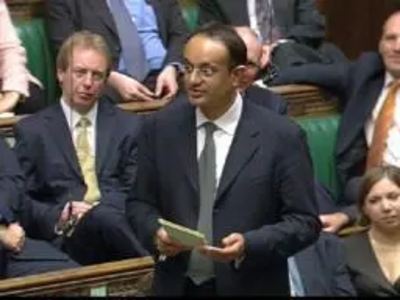Government Has Lost Confidence On All Sides - Gill

Commenting on last nights House of Commons vote on the Government's Terror Bill, Parmjit Singh Gill MP, Liberal Democrat Member of Parliament for Leicester South, said:
"The vote last night demonstrated the Government has lost the confidence of all sides of the House on their anti-terror measures.
"They need to rethink the Bill and extend the power of a judge to decide on all control orders, build safeguards on evidence and create charges against suspects.
"Unless there is a major change in this legislation, it is doomed to fail."
ENDS
Notes to Editors
1. On Monday, MPs voted 272-219 in favour of the bill after key concessions from Mr Clarke. The government earlier saw its 161-strong majority cut to just 14 as a cross-party amendment was narrowly rejected by the Commons despite the support of 62 Labour rebels.
2. The government wants the new bill to pass into law by 14 March, when the current powers expire.
3. MPs backed the Prevention of Terrorism Bill after Charles Clarke agreed greater judicial oversight of "control orders" which target terror suspects. But the house arrest plans face opposition in the Lords where the Bill is being debated.
4. "Labour majority slashed to 14 as Clarke concedes on house arrests" -Financial Times
By Ben Hall, Political Correspondent
Published: March 1 2005 08:59 | Last updated: March 1 2005 08:59
Decisions to impose house arrest orders on terrorist suspects will be taken by judges after the home secretary bowed to demands for changes from MPs amid angry scenes in the Commons.
The government majority was cut to 14 in one of the votes on the bill on Monday night after dozens of Labour MPs rebelled or abstained.
In having to climb down, Charles Clarke pledged that the most severe "control orders" involving deprivation of liberty would be subject to the approval of a judge from the outset.
He announced the last-minute concession in a letter to his Conservative and Liberal Democrat opposite numbers, prompting furious complaints from MPs.
Many objected to the fact that the original bill would have given the home secretary, rather than the courts, the right to impose detention without trial against suspects who could not be prosecuted, overturning cherished civil liberties and centuries of constitutional tradition.
The control orders are intended to replace existing anti-terrorism powers, which the House of Lords last year ruled as discriminatory and disproportionate.
MPs from both sides of the House protested that they were being asked to debate and vote on changes outlined in a two-page letter they had not seen.
Under the concession, the home secretary would have to apply to the High Court for an interim control order. The police would be given a new power to "arrest and detain" suspects pending the emergency order. The judge would hear the application within 24 to 48 hours, looking at all the material on which it was based and deciding whether there was a prima facie case. The judicial safeguard would apply to the most restrictive orders that involved derogating from European human rights obligations. Other orders, even ones that curtailed freedom of manoeuvre or communication, would be imposed by the home secretary, with a review by a court within seven days.
Mr Clarke faced a barrage of questions from MPs who felt that the judicial safeguard should apply to all orders. Mr Clarke defended the distinction. "Deprivation of liberty is a qualitatively different thing to restriction of liberty," he said.
The Liberal Democrats welcomed the concession but said it did not go far enough. The Tories said they remained to be convinced of the need to extend the power of the state to restrict a person's liberty.
Kenneth Clarke, the former chancellor, complained that the home secretary was offering only a "minor change" since judges would only be asked whether there was a prima facie case to impose house arrest.
The bill faces a rough ride when it passes to the Lords on Tuesday, with Tory and Lib Dem peers vowing to press for further concessions.
The government is facing mounting pressure from outside Westminster to ditch its proposals. Amnesty International called for the bill to be abandoned. "Nothing short of charging people with an offence and fully granting them their right to be tried by an independent court can remedy the profound injustice and affront to human rights contained in this bill."
5. Parmjit voted against the Bill. A full list of who voted against the Bill having a Third Reading can be found online:
